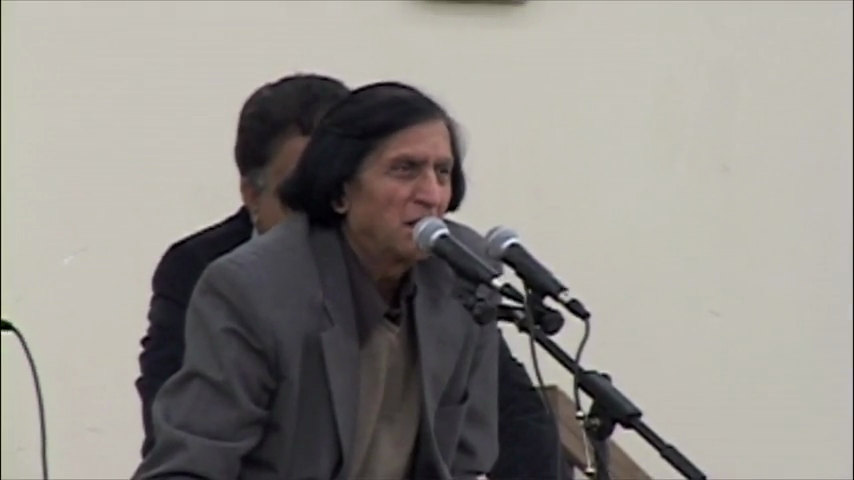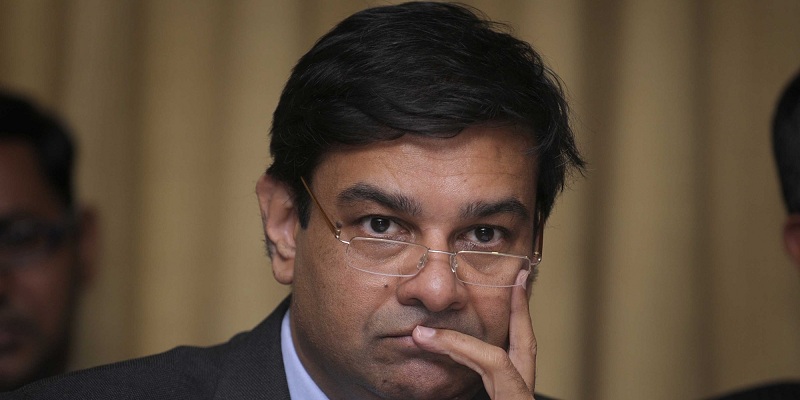Around fifteen days back, a friend of mine from school asked, whether repayment of oil bonds issued during the Congress-UPA regime was responsible for higher petrol and diesel prices. Given that, these bonds had to be repaid, the government had no option, but to charge higher taxes on petrol and diesel.
I said no. He then asked, why are forwards going around on WhatsApp saying so. I wrote a piece explaining why there was no link between repayment of oil bonds and the high prices of petrol and diesel.
This set me thinking and led to the question. Why do people believe things sent on WhatsApp so easily? And here are a few answers that I could come up with.
1) Social media, cyberspace, WhatsApp or whatever else one might want to call it, in a way is an extension of the old village square or simply the park in the housing complex you live in or the little space in front of your building, where you meet your neighbours and friends, and talk and gossip with them. Like was the case earlier, WhatsApp is also a space where people meet, talk, discuss and have views on things they don’t understand, like was and is the case, when they meet physically.
The discussions that happened (or still happen) in a village square kind of space were not recorded anywhere. A version of the discussion existed only in the minds of people who happened to be there. No one remembers their past exactly. We all remember a version of it. And as days went by people forgot about what they had discussed at the village square and moved on.
This is not true about WhatsApp or other forms of social media. If a wrong explanation about a particular issue is offered there is an evidence that it exists. Of course, unlike a village square or a park in the housing complex, WhatsApp is not a physical space. But it is still a space where people meet and interact. So, to that extent things haven’t really changed.
Hence, what was happening earlier is also happening now. Even in the pre-WhatsApp/social media era, people believed in conspiracy theories or offered explanations on topics they had very little idea of and believed in many things without doing some basic research. It’s just that there was no record of such things happening.
But in a digital space, some sort of record of the discussion having happened, remains. Hence, this phenomenon is more obvious now than it was in the past. And to that extent, the fact that most people in general are ignorant about most things, comes out much more clearly now. Of course, their ignorance continues to be directly proportional to their confidence.
2) When I use the word ignorant here, I am not being judgmental, I am only trying to state the obvious. Most of us have extremely limited expertise in extremely limited areas (I suggest that you read another piece titled On Advice that I wrote a while back).
This is primarily because most of us are busy in our own little worlds, trying to make the best of what we have. So, unless something really matters to us, we don’t want to spend time understanding it. This explains why people spend so much time planning holidays but have next to no idea about what the gross domestic product (GDP) of a country really means.
As Thomas Sowell writes in Knowledge and Decisions:
“To exhort the individual citizen to make investments in knowledge comparable to those of lobbyists and political crusaders (both of whom have much lower costs per unit of personal benefit) is to urge him to behaviour that is irrational, if not physically impossible in a twenty-four hour day.”
Nevertheless, this doesn’t stop us from having views on things that we don’t understand.
This is a weakness, which people with an agenda make use of. Take the case of the high petrol and diesel prices. They are high primarily because corporate tax collections have fallen since September 2019, when the government decided to cut the peak corporate rate from 30% to 22%. In order to make up for this deficit, the central government is charging higher taxes on every litre of petrol and diesel sold, than they did in the past.
This is a politically suicidal explanation when it comes to explaining why petrol prices in many parts of the country have crossed Rs 100 per litre. How can the common man pay more, when the corporates are not paying their fair share of taxes?
Hence, the politicians and many others have come with the story of oil bonds issued by the previous government having to be repaid, as an explanation for high petrol and diesel prices. Of course, a basic Google search can negate this explanation. But once people have read this on WhatsApp their minds are satiated, as an anomaly has been explained away in a way that sounds reasonably true.
Given the fact that people are learning what they are from WhatsApp, it’s even referred to as WhatsApp University in zest.

3) The question is, why all this possible now, and wasn’t possible earlier. The answer lies in the fact that in the earlier era any large propaganda had to be carried out openly either through newspapers, magazines, TV or radio, for that matter. And given that it came with its own set of limitations.
One, there was a price attached to it. Two, most propaganda came with a face.
So, let’s say petrol prices had crossed Rs 100 per litre in the early 2000s, when smart phones were not around. Anyone writing a piece in a newspaper offering a reason for it, had to do it in his own name. In that situation, it would be very difficult to offer the wrong reasons in the hope of people buying it and the writer getting away with it. Once a piece had been published, others could easily call out the writer’s bluff leaving his or her reputation in tatters.
In today’s era, with a significant proportion of the population owning smartphones and the availability of cheap internet leading to the rise of social media like WhatsApp, such problems no longer exist. Producing fake news is cheap. All it requires is a literate person, who has a mobile phone with an internet connection. This has made things significantly easy for people who want to spread propaganda or run an agenda or just want to have some fun.
Take the case of vaccine deniers. Social media has made their life very easy. They can propagate any nonsense that they want to. This is not to say that this did not happen earlier. It did. It’s just that now it can be done anonymously and probably at a much faster pace. Anyone can author a post and just send it across. And after it has been forwarded a few times, no one has any idea of who has written it. The anonymity that the social media provides is a big reason why fake news is created in the first place.
4) Also, given that the social media is more or less free, it comes with the capacity of endless repetition. This is what political parties all over the world try to make use of, by feeding content that their supporters like to believe in and creating hatred towards a class or a community or a caste or a religion.
Or simply offering nonsensical reasons for an economic trend like petrol and diesel prices are high because oil bonds need to be repaid. As Abhijit Banerjee and Esther Duflo write in Good Economics for Hard Times: “The problem with echo chambers is not just that we are only exposed to ideas we like; we are also exposed to them again and again and again, endlessly.” So, every time petrol and diesel prices rise, the oil bond angle is whipped out all over again, because there is no cost attached to it. Also, as Sowell writes: “sober analysis seldom has the appeal of ringing rhetoric.”
In fact, the production of fake news is impacting the traditional mainstream media which wants to do good journalism. As Banerjee and Duflo write:
“Circulation of news on social media is killing the production of reliable news and analysis. Producing fake news is of course very cheap and very rewarding economically since, unconstrained by reality, it is easy to serve to your readership exactly what they want to read. But if you don’t want to make things up, you can also just copy it from elsewhere.”
The larger point here, as Banerjee and Duflo put it, is ‘the economic model that sustained journalism as a location for “public space” (and correct information) is collapsing’. In this scenario, ‘without access to proper facts, it is easier to indulge in nonsense’.
Of course, this is not to say that the mainstream media is all kosher. It is not. But that is another topic for another day.

5) The major issue at play here is, whether you support the current government or not. This has led to a situation where there is a great need among many people to support the government on everything and anything. What George Orwell called groupthink is at work here.
As Christopher Booker writes in Groupthink—A Study in Self Delusion: “A group of people comes to be fixated on some belief or view of the world which seems hugely important to them.” In this case, the view is that the current Narendra Modi government can do no wrong. Hence, if petrol prices are more than Rs 100 per litre in many parts of the country and diesel prices are very high, there must be a genuine reason for it, for which the current government is not responsible.
And this is where the fake story of oil bonds comes in and satiates the minds of such individuals. Social media like WhatsApp just helps achieve this at a fast pace and an almost costless sort of way.
Also, once such people have a reason, they go out of their way to defend it. As Booker writes: “They are convinced that their opinion is so self-evidently right that no sensible person could disagree with it. Most telling of all, this leads them to treat all those who differ from their beliefs with a peculiar kind of contemptuous hostility.”
This explains why many family WhatsApp groups where people used to share good morning and happy birthday messages, have turned into virtual battlefields. But the trouble is, such individuals are not doing their own thinking. They are just believing in whatever they have been told.
As Booker writes:
“They have not looked seriously at the facts or the evidence. They have simply taken their opinions or beliefs on trust, ready-made, from others. But the very fact that their opinions are not based on any real understanding of why they believe what they do only allows them to believe even more insistently and intolerantly that their views are right.”
They have become victims of groupthink and are likely to continue to be so.
To conclude, as Alan Rusbridger, writes in Breaking News – The Remaking of Journalism and Why It Matters Now: “ Bad information [is] everywhere: good information [is] increasingly for smaller elites. It [is] harder for good information to compete on equal terms with bad.”
Bad news is driving out good news. And WhatsApp, as a medium, is at the heart of it.




